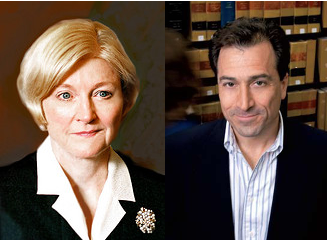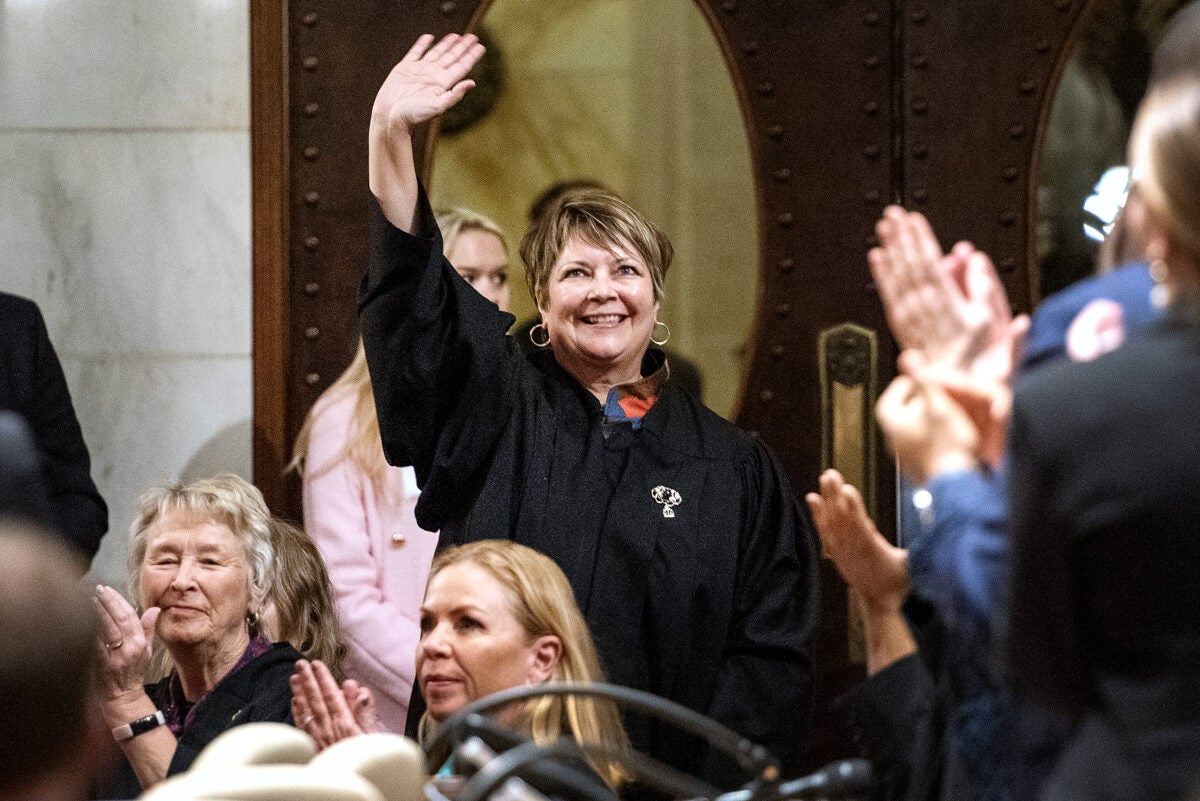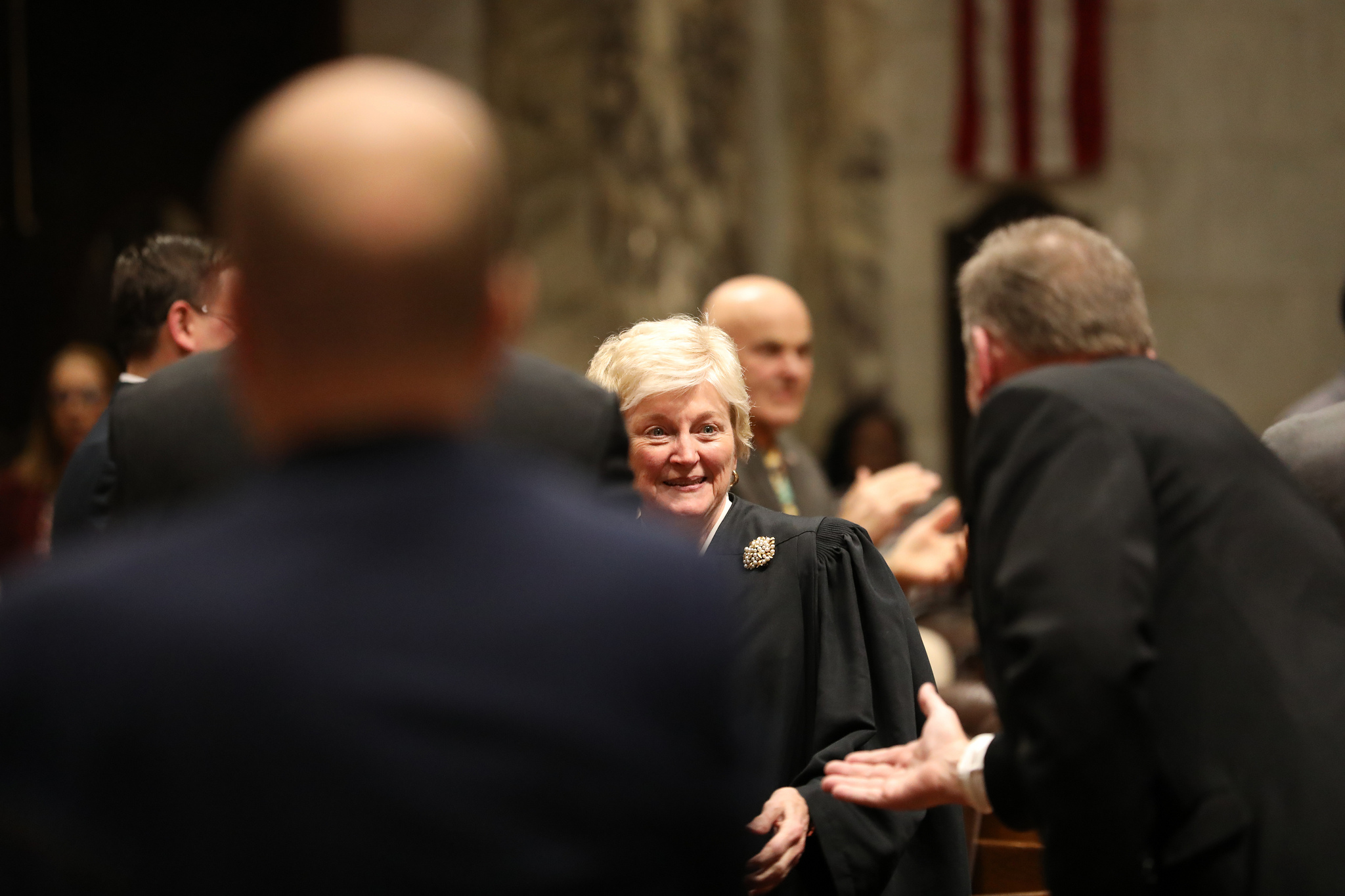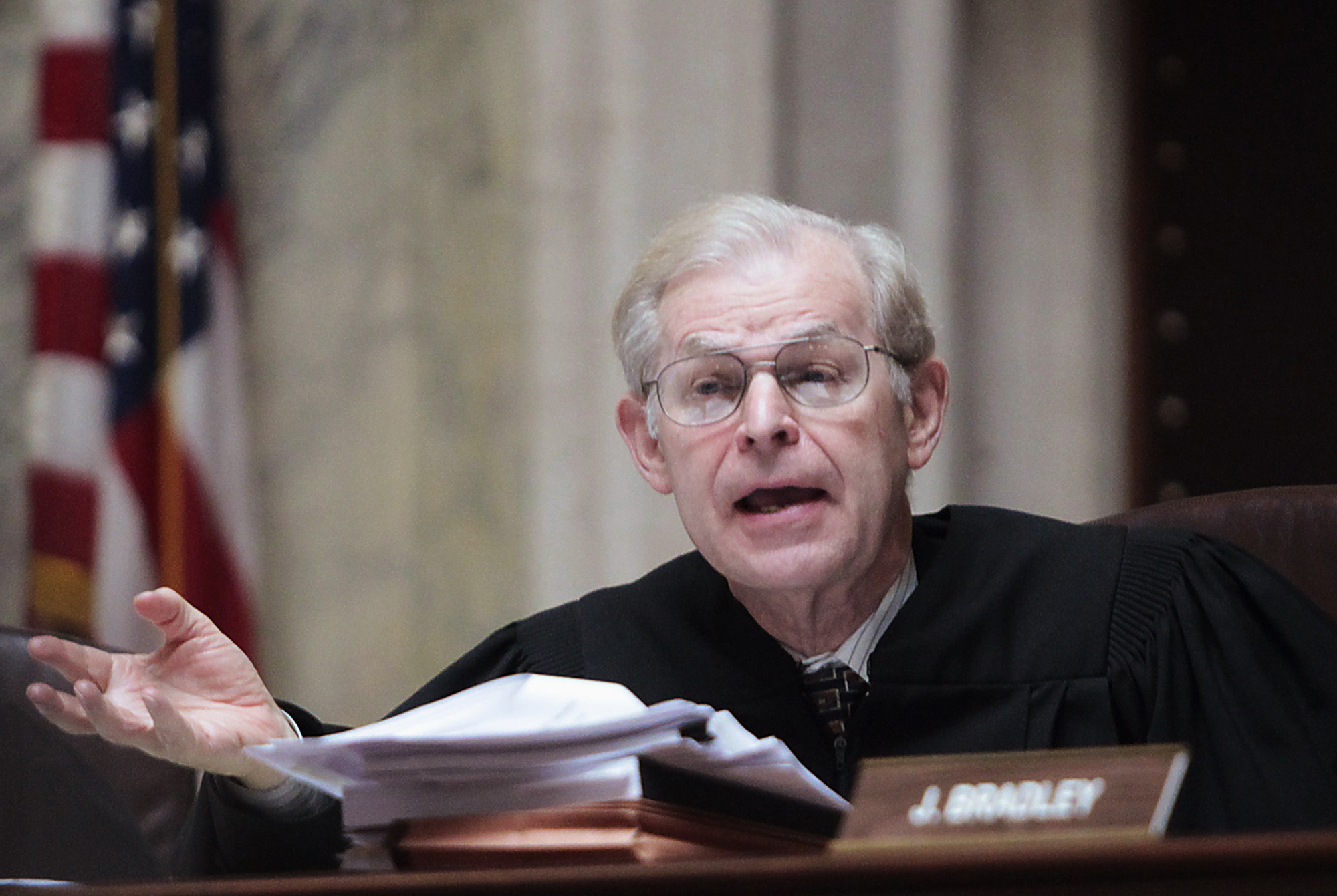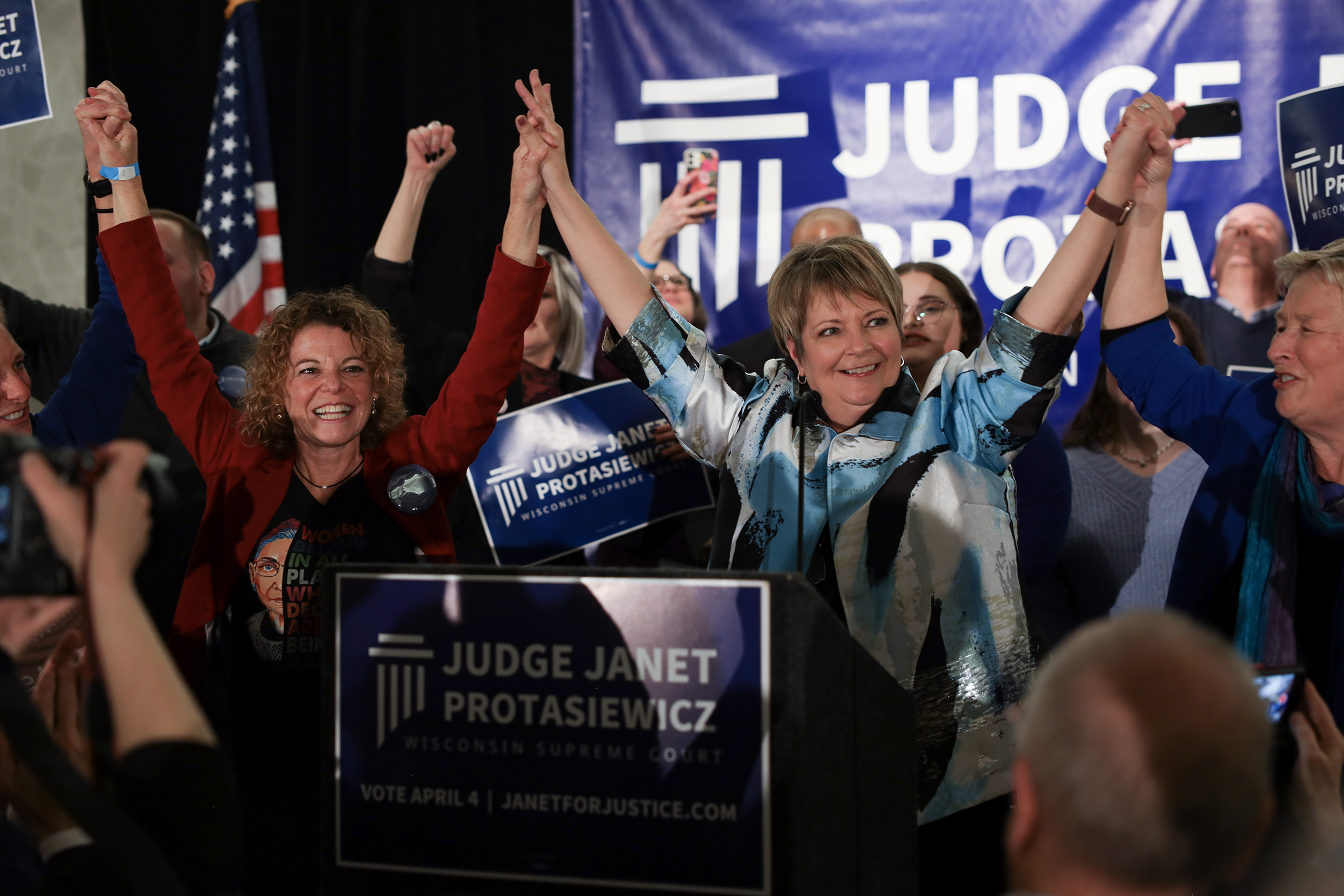One of the central issues in the race for Supreme Court this April is whether campaign contributions affect the ability of a judge to be impartial.
The incumbent in the race says it should be up to the judge to decide that. The challenger wants an across-the-board rule.
Incumbent Justice Pat Roggensack says that for this re-election campaign, she tracks contributions. She plans to use that information, if re-elected, to decide which cases she should not participate in because of the risk that she could appear biased.
Stay informed on the latest news
Sign up for WPR’s email newsletter.
“We have a fully [alphabetized] cross-referenced list so we can check exactly and see what comes in and if I believe that the amount was significant enough to give the public concern about my fairness on a case, I won’t be participating.”
Under current rules – rules that Justice Roggensack voted in favor of – justices are not required to withdraw from a case based solely on a campaign contribution.
Roggensack suggests anything over $1,000 would trigger her recusal. But the challenger in the race, Marquette Law Professor Ed Fallone, says he will push to write new rules that set specific contribution limits that require recusal:
“To make sure that any party before you who feels that you might be influenced by a campaign contribution that you have received by their opponent or their lawyer has the ability to make a recusal motion before you asking you to step down because of that and solely because of that.”
The current rule on campaign contributions and recusal was proposed by Wisconsin Manufacturers and Commerce and adopted by the court in 2011 in a 4-3 vote. That vote followed a heated debate among the justices over a competing rule from the League of Women Voters that proposed setting limits similar to what Fallone is proposing now.
Wisconsin Public Radio, © Copyright 2024, Board of Regents of the University of Wisconsin System and Wisconsin Educational Communications Board.

